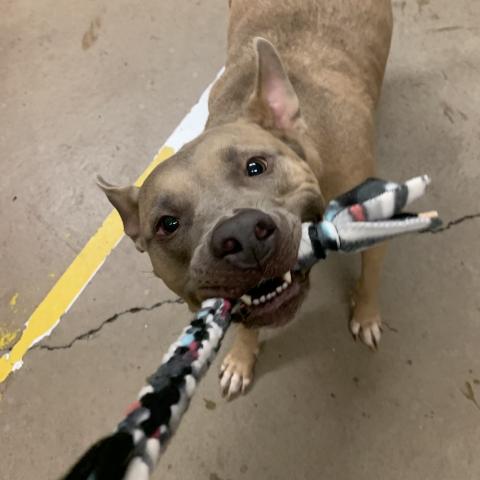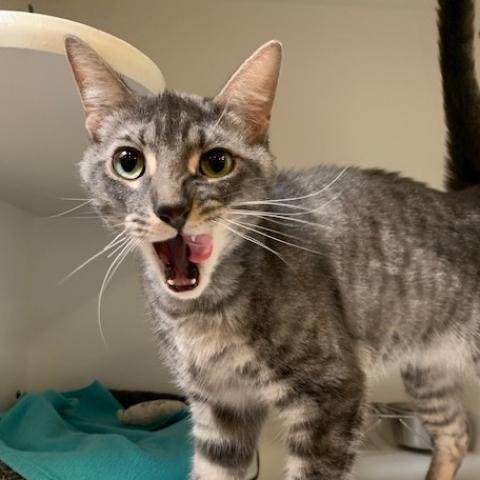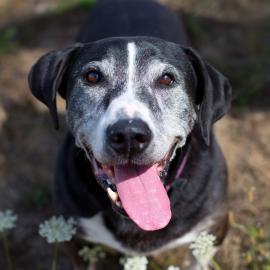2020 Asilomar Report Summary
Background
As its “north star,” Multnomah County Animal Services (MCAS) strives for excellence in the quality of care for animals in our shelter, and in providing equitable services to our community. As MCAS releases its 2020 Asilomar report, we want to provide background information about the outcomes for animals in our care and their circumstances, in keeping with these guiding principles.
Changes in Shelter Operations in 2020
At the onset of the COVID-19 pandemic in Spring 2020, MCAS made several changes to its shelter intake policy.
In an effort to reduce the risk of person-to-person exposure, Intake for stray cats and kittens was limited to sick or injured animals in need of medical care, or for other cases where the welfare of the animal was at risk. This change in operations was in alignment with national best practices, and recommendations on Cat Intake Protocols released by the National Animal Care & Control Association (NACA). You can find a copy of those recommendations at this link on www.nacanet.org. The NACA recommendations have been endorsed by experts in animal sheltering and welfare including: The University of Wisconsin Shelter Medicine Program, the Association of Shelter Veterinarians, the Koret Shelter Medicine Program at the University of California, Davis, the Maddie’s Shelter Medicine Program at the University of Florida, The Ohio State University College of Veterinary Medicine, Best Friends Animal Society, American Pets Alive!, and many others.
As a result, MCAS cared for fewer cats in 2020, but the cases we did care for required more medical assistance. Intake for stray dogs also decreased. Contributing factors for the reduced number of dogs coming to the shelter include the changing workplace with broad focus of many businesses shifting to telework. This change allows pet owners to spend more time at home with their animals. Additionally, studies have shown the therapeutic effect that pets have on their owners, which has likely increased due to the stresses of the global pandemic, as well as the nation-wide racial justice movement. These factors and others result in more time being spent with pets, giving them less time alone when they could potentially escape their enclosures and become lost.
Live Release Outcomes
In 2020, MCAS had an overall live release rate of 89.42% for dogs and cats - with 92.8% percent of dogs, and 86.55% of cats having a live outcome. This refers to animals who are returned to their owners, adopted to new homes, transferred to other community shelters or rescues, and a small number of animals who are returned to the field, such as community cats.
This live release rate reflects a decrease of 1.48% in comparison to 2019. While MCAS humanely euthanized fewer animals in total throughout 2020 than in the previous year, shelter intake was also reduced from 5,393 to 3,042 animals, and intake criteria for cats was limited to cases of medical necessity, meaning we saw more unhealthy cats.
As Multnomah County’s only stray holding facility, we take stray and vulnerable animals in and in determining their path through the shelter, we weigh difficult decisions that consider a number of critical factors such as the health of the pet, public and animal safety, quality of life, and our capacity to provide humane care.
We thank our supporters in the community, our dedicated volunteers, and hard-working staff for providing the best quality of care we can for our animals. Our continued high live-release-rate is a testament to the hard work and combined efforts to ensure we're doing our best for every animal that comes through our doors.
Adoption
At the Onset of the COVID-19 pandemic in March 2020, on-site adoption services were suspended to prevent possible exposure for members of the public and MCAS staff. Adoptions continued from adoption partners in the community, and from volunteer foster homes. On-site adoptions at the shelter resumed in October 2020 after implementing a virtual process for adoption applications, interviews, and a limited-contact pickup process for adopted pets. In total, 478 animals were adopted to new homes throughout the year.
Transferred Animals
MCAS transferred 1,095 cats and dogs to almost fifty (50) regional shelters and rescue partners in 2020. The majority of animals were transferred to partners in the Animal Shelter Alliance of Portland (ASAP), including Oregon Humane Society (OHS), and Cat Adoption Team (CAT). The support of our transport partners was crucial in 2020 due to the unique circumstances of the COVID-19 pandemic, and limited opportunities for safe adoptions. We thank all shelters and rescues who contributed to this life saving work in the last year.
Animals Returned to Owner
1,027 dogs and cats were returned to their owners in 2020. Of the animals returned to owner, 770 were strays at intake, and only 36% of strays had forms of identification such as a license or a microchip. The remaining animals include those provided emergency boarding, impounded by animal control officers for protective custody or bite quarantine, and a small percentage of animals originally surrendered by their owners.
Animals Returned to Habitat
In 2020, twelve (12) unsocial community cats caught in live-release-traps were neutered or spayed, then returned to the area where they were found with the assistance and/or knowledge of their caretaker, or finder willing to care for the cats.
Twenty-four (24) cats were placed through the Kitties For Hire (KFH) program. Cats in this program are not socialized to live in a home, and are not able to be returned to the area where they were found. Prior to placement, the cats are vaccinated, microchipped and spayed or neutered. Kitties for Hire are placed in pairs in eligible properties outside of city limits, where a caretaker has agreed to care for the cats, including providing adequate food, water, shelter, and veterinary care. The cats are confined to a barn or other suitable sheltered area for at least three weeks before being permitted to roam the property.
Humane Euthanasia Considerations
Dogs
While no intake restrictions were in place for dogs, MCAS still took in fewer dogs in 2020 than in the previous year. However, even with reduced intake of stray animals and other animals surrendered by their owners, MCAS sustained a similar intake as the prior year for dogs with behavioral or medical concerns. MCAS serves as a safety net for cases of dangerous and potentially dangerous dogs which would not be safe to place back into the community, and for cases of stray animals in need of medical attention.
Seventy-eight (78) dogs were humanely euthanized for underlying behavioral concerns, with most common issues being severe aggression and/or intense fear which contributed to aggressive behavior. Thirty six (36) dogs were humanely euthanized for medical reasons, including terminal decline due to the end-stage of a disease, cancer, and other unmanageable or unsustainable medical conditions.
Cats
In 2020, MCAS took in 1,532 cats and kittens, compared to 3,006 in 2019. While the number of cats in our care decreased, and the number of cats euthanized also decreased, a greater percentage of the cat population were sick or injured at the time of intake, and had medical conditions or a prognosis where humane euthanasia was recommended by a veterinarian.
One hundred and ninety six (196) cats were humanely euthanized for medical reasons, including terminal decline due to the end-stage of a disease, renal disease, and other unmanageable or unsustainable medical conditions. Two (2) cats were humanely euthanized due to behavioral concerns involving intense aggression and anxiety.
Increasing Life-Saving Capacity
We work continually to build our capacity to serve our community of pets and people through unforeseen circumstances including the COVID-19 pandemic, and the resulting impact on the health and welfare of pets and people. Our agency is working to help pet owners keep their animals in the home and prevent pet loss. We seek the most effective means to save lives by reuniting more lost pets with their people, expanding sheltering capabilities with volunteer foster homes, placing animals in adoptive homes, or transferring animals to our regional sheltering and rescue partners.
We thank our stakeholders for the support to provide high-quality, individualized care for each animal, equitable services to the pets and people of our community, and to maintain a high live-release-rate for animals at our shelter.


